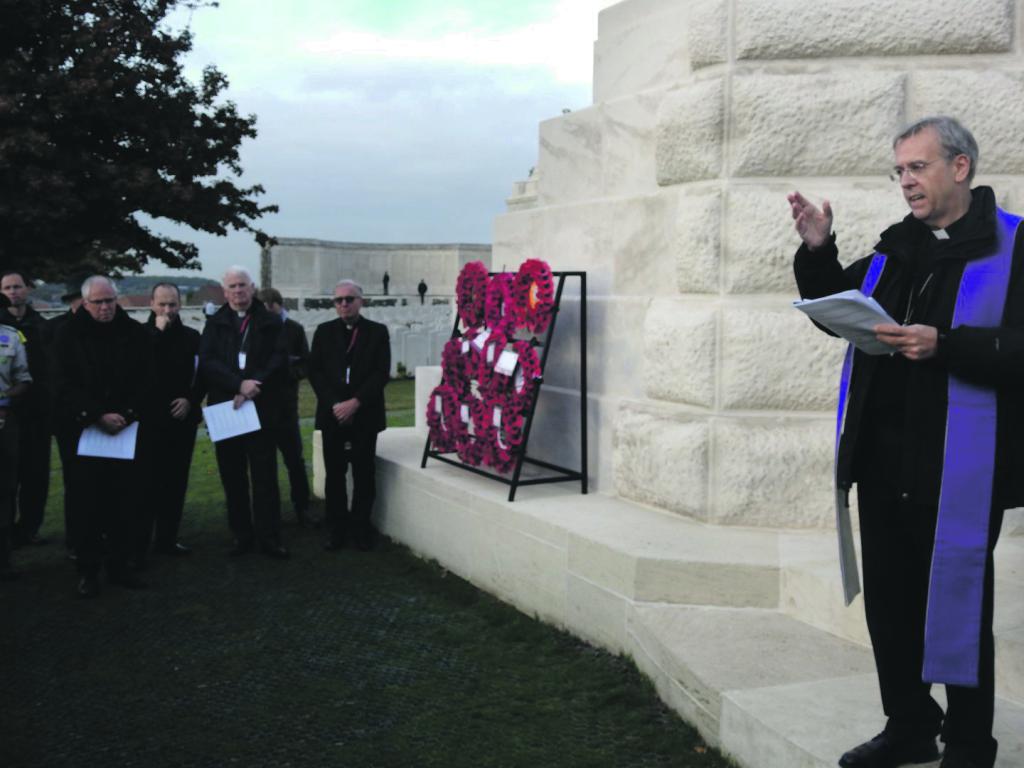Ahead of the centenary of the Armistice, Bishop Nicholas Hudson presided at a service at Tyne Cot cemetery in Ypres on 24th October to remember all those who died in the First World War.
I feel deeply moved to be with you in Tyne Cot because my grandfather, Eric Hudson, fought here in the Battle of Passchendaele and survived. We gather here in a spirit of what the ancient Romans called ‘pietas’. ‘Pietas’, for the Romans, meant gratitude, loyalty, respect. We gather indeed in gratitude, loyalty and respect for all those here who laid down their lives in order that we might be free. We pray that they may now rest in peace; we pray for peace across the whole continent of Europe. When we gathered, many of us, for the ‘Re-thinking Europe’ conference in the Vatican, the Holy Father urged all of us to ‘keep the human’ at the centre, at the heart of the European project. Tyne Cot is a place where we cannot but think of the human. For around us lie the remains of 12,000 men.
The inscriptions chosen by their families to adorn the headstones are deeply poignant. ‘Greater love has no man than to lay down his life for his friends’; ‘Well done, dear husband and father, your noble duty done’. This is a place where we remember the cost of war for both family and soldier alike. We remember what it is to be human; remember the sacrifice made by these men for their fellow human beings. It is a place we should resolve never to forget; from the rising of the sun to its setting, always to remember them.
Tyne Cot Cemetery is the largest Commonwealth War Graves Commission cemetery in the world and is the resting place of over 11,900 servicemen of the British Empire from the First World War. It is located on the Western Front where the Third Battle of Ypres, also known as the Battle of Passchendaele, one of the major battles of the First World War took place.




